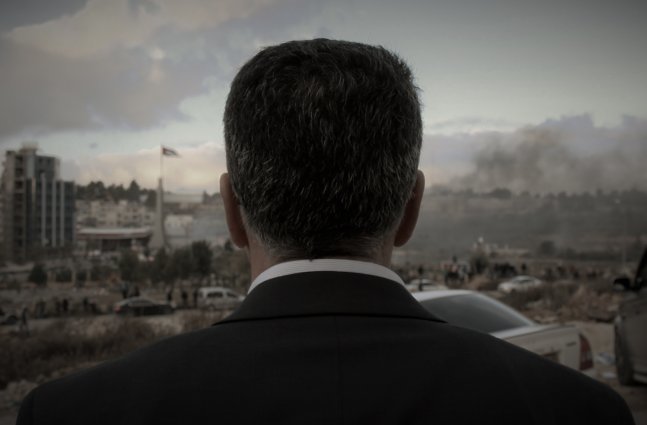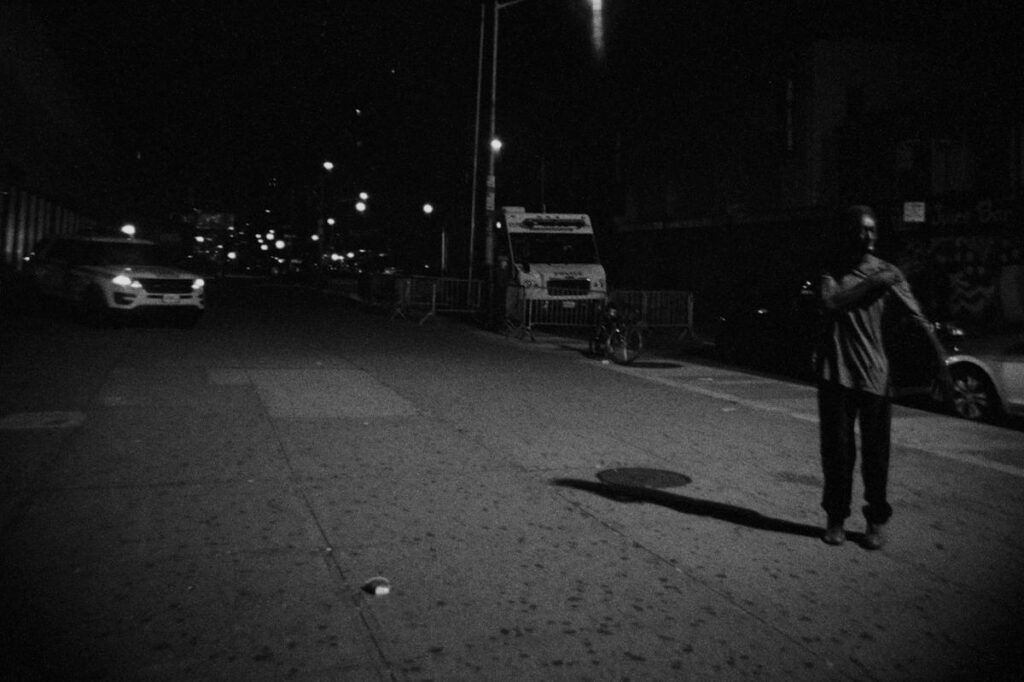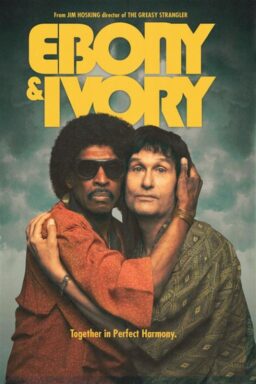One of the big premieres at the festival was Khalik Allah’s latest feature “IWOW: I Walk On Water,” a 200-minute self-portrait that lays bare his filmmaking process, his relationships with friends and family and ex-girlfriends and documentary subjects and Wu-Tang members, his thoughts on subjects ranging from religion to root vegetables, and, obviously, himself. It is, definitionally, a lot, both stylistically and as an interpretative text. Anecdotally, the film garnered a wide variety of reactions, from effusive to appalled, but it was also the most talked-about movie in my circles at the festival by a wide margin.
Before I try to unpack the film, I should state a handful of caveats that necessarily color my opinion. 1) I am not black. 2) I am not from Harlem. 3) I am not a member of the Five-Percent Nation movement, an offshoot of the Nation of Islam. 4) I don’t recreationally ingest psychedelic mushrooms. It’s not guaranteed you will enjoy “IWOW” any more or less than I did if you fit into one of those categories, but you’re bound to take away more from it than not. “IWOW” foregrounds all shades of Khalik, including his racial, regional, and religious identities (as well as his vices), which inevitably means that he speaks to those who share his path as much as he does to a universal audience.
At the same time, I wonder what audience Khalik had in mind for his film. “IWOW” is an insular affair, to put it mildly, a documentary seemingly for those who have accessed and followed his previous work, who are within or adjacent to the industry, or who know Khalik personally. It’s the type of movie to generate a laugh at a spare shot of someone holding an IFFR (International Film Festival of Rotterdam) tote bag. Though Khalik’s intoxicating style is certainly accessible in short bursts, the idea of putting a novice in front of this almost-three-and-a-half-hour behemoth feels like they would be lost in a beautiful-looking inside joke.
“IWOW” broadly scans as a culmination of Khalik’s work up to this point, taking a key member from his breakthrough feature “Field Niggas” and set when Khalik was promoting his follow-up “Black Mother,” but also taking his filmmaking tics and ideas—intimate close-ups, asynchronous sound design that separates speech from speaker, an ethnographic lens, possibly problematic aestheticization of bodies—to the absolute end of the line. A collage diary of sorts, “IWOW” comprises footage Khalik shot in the summer and fall of 2019 and broadly documents his relationship with Frenchie, a sixty-something homeless Haitian man living in Harlem with schizophrenia who was previously featured in “Field Niggas,” and his Italian girlfriend, who functions as his muse (or, occasionally, a foil, and sometimes a chorus). These two through-lines center a digressive autobiography that prominently features Khalik on the audio track but almost entirely omits him from the frame. As his voice turns inward, his eye remains in the direction of the world.
There’s a lot of talk that runs the whole gamut of conversation topics. Some of the discussions are sober-minded and cover histories of black thought or Five-Percenter ideology or the changing landscape of Harlem. Sometimes Khalik just shoots the shit with, say, Wu-Tang’s RZA or U-God, or Frenchie, or his mother, or his girlfriend, or various strangers he meets on the streets, or the cops, or anyone, really. Sometimes it’s very funny, other times it’s boring or cringe-worthy, and sometimes it’s just completely inane. Still, I appreciate the logic: a naked autobiography demands a depiction of the whole self, even the bad and boring parts.
The autobiographical impulse that drives “IWOW” opens up a can of worms about Khalik’s motives and attitudes, whether or not the portrait arrives from a sincere place, if there’s an unseen ironic or offhanded edge to the project, and, most importantly, what he’s choosing not to disclose. These are worthy points of critique that I also don’t feel 100% comfortable addressing, mostly because my response to most of them is, “I don’t know.” For what it’s worth, I do think “IWOW” is most productive if you believe Khalik at every turn, about Frenchie being his best friend despite the transactional dimension to their relationship, about his feelings on femininity, about how he sometimes sees visions of Ol’ Dirty Bastard. At one point, he likens himself to Jesus Christ while tripping on mushrooms in front of his mother. The film opens up tremendously if you take Khalik at his word that he believes he’s Jesus Christ in that very moment.
His sheer vulnerability makes “IWOW” an overwhelming experience, but I’m not sure it makes it wholly successful. Khalik risks the possibility of someone walking away from (or out of) the film genuinely disliking him, or at the very least finding him boring. It’s also possible “IWOW” takes away some of the magic of his previous features by displaying his process, which certainly fascinates but also constantly skirts ethical lines regarding exploitation and fetishization. It’s easy to write a lot of this off as the unfortunate byproducts of curiosity, but a less generous interpretation might say otherwise, and they wouldn’t necessarily be wrong for doing so. His hallucinogenic imagery ensured I was never actively bored, but there were times when I found myself disengaged from Khalik’s voice. An everything-but-the-kitchen-sink approach hazards indifference.
Still, I liked it, even though I’m still working through why. At the festival, I kept likening “IWOW” to Vincent Gallo’s “Buffalo 66.” That might not be a flattering comparison depending on who you ask, but nevertheless, there’s a connection between the vanity project origins of the projects and how the final results grasps for a higher truth within the navel’s gaze. For better or worse, Khalik totalizes himself on screen, and though the individual parts might dazzle or dull, the sum adds up to a living photograph, which is an achievement.

Now, a few, final words on a couple other films I liked …
Much of the tragicomic power of David Osit’s “Mayor” comes from watching the various indignities Musa Hadid faces every day as the mayor of Ramallah, a historically Christian city that operates as the makeshift capital of Palestine. A sensible, prudent leader, Hadid constantly contends with his city’s widespread lack of resources and general negligence from his staff. “Mayor” shows him quite literally putting out fires and cleaning up shit (Ramallah can’t open a sewage treatment plan without permission from Israel) as part of his daily duties. But when Trump plans to name Jerusalem the capital of Israel and vows to move the U.S. embassy there, Hadid goes into overdrive to illustrate to the world why that would be a destabilizing decision, which becomes another crucial opportunity to convey the plight of the Palestinian people under occupation.
“Mayor” works best as a process film; Osit’s filmmaking is most gripping when he’s simply observing Hadid in meetings or struggling to acquire a radio to hear international news. The lead-up to the Ramallah’s Christmas celebrations provides quotidian urgency to their actions, and Osit smartly characterizes the actions and rhetoric of the Trump administration as an interruption from the various traumas Ramallah faces at home. Hadid has to respond to Trump, and he has to play international diplomatic leader, but he’d clearly much rather be building up his city than desperately trying to convince people that the Palestinians are deserving of rights. As a subject, Hadid compels on his own merits—his palpable compassion for his city and its citizens propels the film and provides his moral righteousness with a proper foundation—but the film occasionally falters by hewing too closely to conventional narrative beats and needlessly foregrounding a sentimental edge. Osit gathers enough material to fashion the movie in a less heavy-handed manner, but there are times when he over-emphasizes obvious truths for his audience, just in case it goes over their heads, or, worse, tries to needlessly heroize Hadid, whose admirable actions confer respect all on their own. “Mayor” is a smart film whenever Osit gets out of his way and lets Hadid and the region speak for themselves.

“Some Kind of Heaven” broadly scans like an early Errol Morris film in terms of how first-time director Lance Oppenheim characterizes his setting—the Villages, a Florida retirement community that’s the largest of its kind in the United States—and his three subjects, retirees who find out that their slice of heaven comes with many complications. He lets interviews and archival footage speak for itself, eschewing traditional narration or storytelling cues in favor of pure immersion. Though Oppenheim illustrates the gap between the Villages’ advertising copy—think Disneyland-esque utopia for the Boomer set—and the practical reality of living there, he doesn’t try to characterize the community as a sham or prove an obvious point about false expectations.
Oppenheim’s film invests in the dreams and desires of its residents, such as Barbara, a recent widower who finds herself out of place in the carefree community until she meets a Parrot Head bachelor who makes a killer margarita, or Dennis, an aging partier who lives in his van and passes as a resident because he wants to find a wealthy woman to take care of him for his remaining years. The documentary kicks into a more potent register whenever it focuses on Anne and Reggie, a married couple whose relationship has been threatened by Reggie’s recreational drug use. Watching the two put the pieces back together in the eyes of each other, not to mention the law, neatly underscores how the Villages can’t actually keep life’s obstacles at a distance. Plus, Oppenheim’s keen compositional sense perfectly bolsters the film’s narrative: each carefully crafted frame provides whomever is in it with inherent worth.












